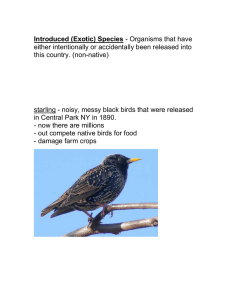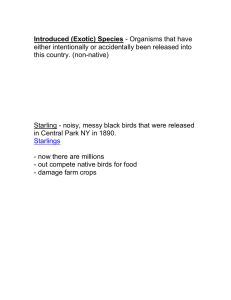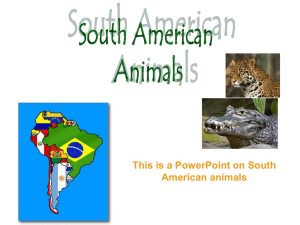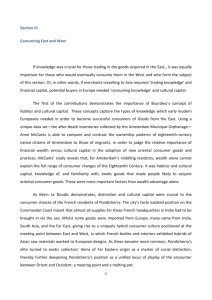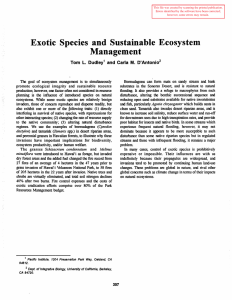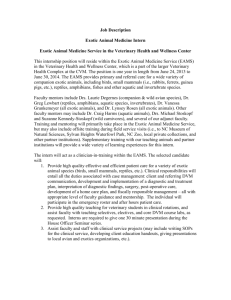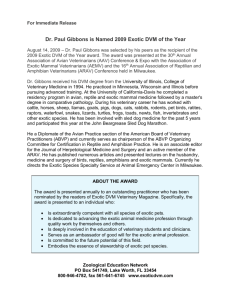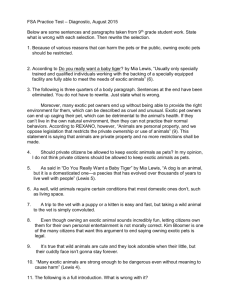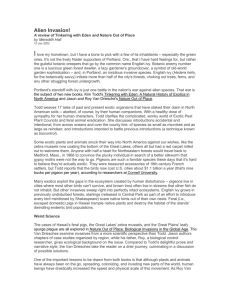Trading in Exotic Animals
advertisement
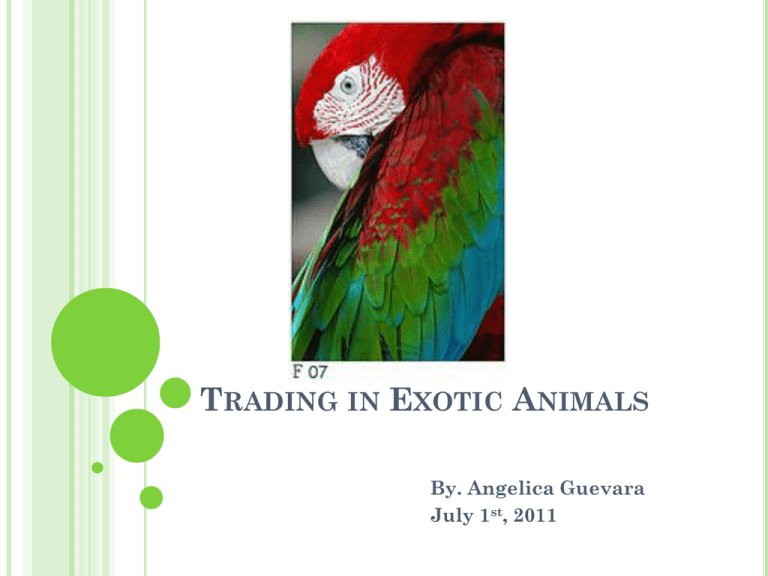
TRADING IN EXOTIC ANIMALS By. Angelica Guevara July 1st, 2011 INTRODUCTION Colombia has the largest number of species per unit area on the planet. There are over 1800 species of birds and a variety of species in the Amazon jungle (birds, insects, fish, monkeys and reptiles unique in the world, like the pink Dolphin. EXOTIC ANIMALS IN COLOMBIA 1875 spices of birds 733 spices of amphibians 447 species of mammals 3019 species of butterflies 4800 species of insects PROBLEMS 1. A LUCRATIVE BUSINESS After drugs and arms trade, trafficking and smuggling in wildlife is the most lucrative illegal business in the world. Illegally trafficked animals move around 400 million dollars a year PROBLEMS THE ANIMALS SUFFER DURING CAPTURE AND TRANSPORTATION Ex. a man who was arrested at the Los Angeles airport had Asian leopard cats in a backpack, birds of paradise in additional luggage, and pygmy monkeys in his underwear. PROBLEMS LAW IS WEAK Colombia became a member of CITIES (the Convention on International Trade in Endangered Species of Wild Fauna and Flora) in 1991, which is an international agreement between governments. The objective is to ensure that trade in specimens of wild animals and plants does not threaten their survival VIDEOS http://www.dailymotion.com/video/xaa8r4_don-tbuy-trouble_travel http://www.youtube.com/watch?v=5t4eZHIhNN0 &feature=youtu.be QUESTIONS 1) Why don’t exotic animals make a good pets? What are the potential dangers? QUESTIONS 2) Do you think having an exotic animal in your house damages the ecosystem? Why or why not? QUESTIONS 3) Why do you think the illegal trade in exotic animals is such big business? QUESTIONS 4) Why should governments and citizens care about this problem when there are so many other problems to deal with, like the drug and arms trade or human trafficking? QUESTIONS 5) What kind of laws should governments create to stop the illegal trafficking of exotic animals? THANK YOU
